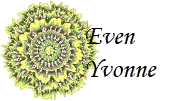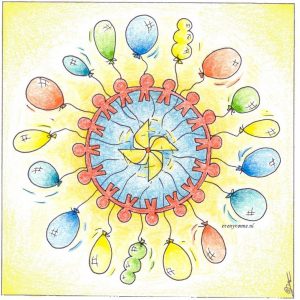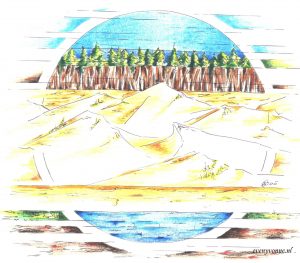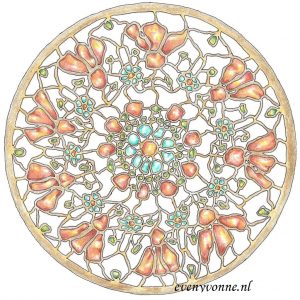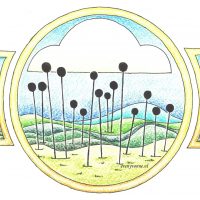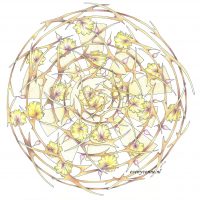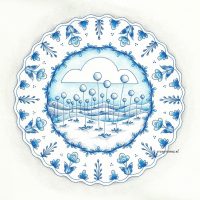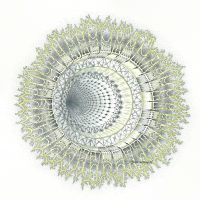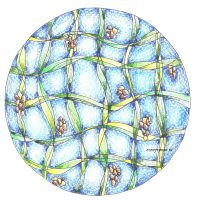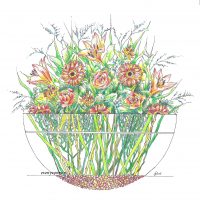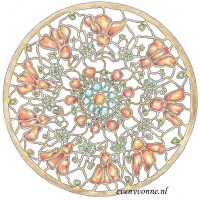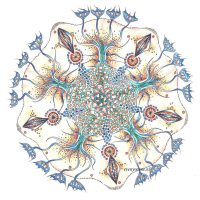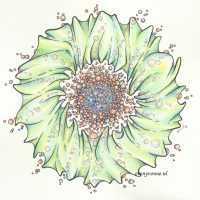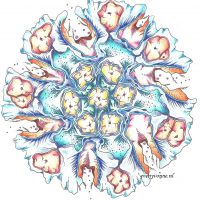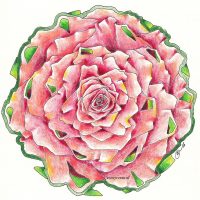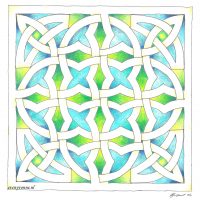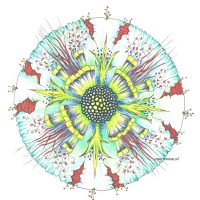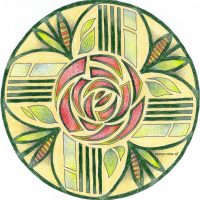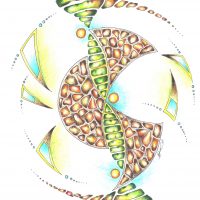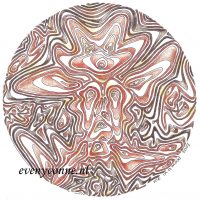He had no clue, how much he helped me. Can I nevertheless call him my rock, my shelter, my champion? I thoroughly enjoyed him during my pregnancy. He tickled the inside of my belly. I never felt alone. Really, I missed that once I gave birth to him. My reumatoid arthritis didn’t trouble me, it had been a while since I had had so much energy and had felt so good as during those months being pregnant. But shortly after the delivery suddenly arthritis reared its ugly head: I couldn’t cycle any more, I could hardly walk, I badly needed support.
My reumatoid arthritis
I’d had reumatoid arthritis from the age of ten. But my health had been stable for years. I could’t walk for very long, my hands were visibly deformed and my legs were scarred from all the operations. But I had a husband, a job and a house. I wanted to add a child to that list. I was 32, so I was in a bit of a hury. The child proved to be a healthy baby. He ate well, grew well, slept well. I took my baby with me to work, the daycare center was right next door. My boss allowed me to pop out now and then to go there and nurse him. An ideal situation, so it seemed.
But underneath it was a far cry from ideal. At home I couldn’t take care of him. My body hurt all over, I couldn’t bathe him or change his nappy without a lot of pain. My only option was to give up physically caring for him. Let the girls at that daycare center do the phisical work. While I did my own work sitting behind my desk. That at least, was something I could just physically manage. Not for long, so it turned out. After a few months I was totally exhausted, physically and mentally. I was deemed unable to work and was entitled a monthly benefit. No more going to work, from then on I stayed at home with my son. Well …..staying at home …that wasn’t what I did. My toddler had to go outside on a regular basis, that was the healthy thing to do, for him as well as for me. With my son in his pushchair I could walk a small distance, it functioned as kind of a walker for me. It gave me some stability and security. With the pushchair as support I walked quite frequently. That way I got my regular exercise. All my energy was spent on taking care of my son, with the help of some professional caretakers, and loving him to bits.
My child, my strenght
A few years later he walked alongside me, his little hand in mine. That gave me so much strength, walking together to the shops in our town, or in the park. I needed that strength because I was far from selfconfident. I generally felt scared, because of all the tension and pain coming with the reumatoid arthritis. I was afraid I might not be able to cope. I actually panicked sometimes when I had to leave the house on my own. He never knew that it wasn’t him holding me, but me holding him en me getting courage and trust in myself from him.
At age 4, he had to go to school. A reason to get a 3-wheeled scooter, with a child seat attached. I took him to school in the morning and was there again to take him home, promptly at three o’ clock every schoolday. Every time I put on my coat, in spite of the pain, the fatigue and in wind and all weathers. Once again my son unknowingly pushed me to stay active, to keep going.
He told me…
For every kid its home situation is the norm. In our house my reumatoid arthritis meant that some family outings were out of bounds. It also meant that I sometimes needed practical help: putting my socks on, getting some food from the shops. My kid did that because I couldn’t. He was okay with it, it was just how things worked at our house. We played games, I helped with his schoolwork, I comforted him when he was sad or had had some misadventure. He got bigger and made his own friends. I got medication that worked for me en learned to accept the limitations of my body. Slowly we needed each other less and less.
When he was 17, one day he came in as I was preparing a meal in the kitchen. He told me he had something to say to me. He said he started to see and understand the consequences of my reumatoid arthritis. He told me he started to understand that the way things worked in our house was not really normal or common. That he started to see how it affected my life and touched his. Him saying all this meant so much to me. After all the support I took from him he now gave it freely and consciously. At the age you start to discover your parents are just ordinary human beings, fallible and all, he saw me. And valued me.
Holding your hand
Now he is all grown up, 21 years old. I stand tall in my orthopaedic shoes. My health is stable. My son is no longer the centre of my life, my source of strength, my motivation to go on. I’m no longer his sense of normal, he now knows we do things differently at our home compared to other homes, because of reumatoid arthritis. That doesn’t bother him. We do have our conflicts, but reumatoid arthritis never plays a role in those, never is a source of regret of reproaches. I sometimes wonder how it influenced or even made him the man he is now. That my reumatoid arthritis did play a role in how he grew up, in the kind of adult he has now become is a certainty. But there is no real of specific answer to this ‘how’ question. I can only be content when I look at him, that is enough. I can let him go. We now walk together as equals. We still help each other, when and where help is wanted or necessary.
The other day my exercise group was a helping hand short. He didn’t have anything special planned. So he went along and gave that helping hand.
Its his job in our house to remove weeds from the garden and load the dishwasher. I do his laundry and sometimes buy his favorite cookies.
My child, you are awesome. I pulled myself through the pain and sorrow holding your hand. Now you are getting ready to leave my house and we have let lose, I want to thank you. For all your support, given willingly and sometimes unknowingly . My son, my champion.
This story was written for the Edgar Stene Prize 2018 (awarded second prize in The Netherlands).
